Open Information is Key in the Fight Against Climate Change
Información abierta, clave en la lucha contra el cambio climático
At the beginning of the year, cities around the world in the C40 network (a climate leadership group) agreed that recovering from the pandemic requires a new commitmentOGP commitments are promises for reform co-created by governments and civil society and submitted as part of an action plan. Commitments typically include a description of the problem, concrete action... from cities to fight climate change.
Cities occupy only 3% of the planet’s surface, but consume 80% of its energyEnsuring universal access to sustainable, dependable, and affordable energy is critical to every aspect of prosperity. Increasing public oversight and transparency in the energy sector can help to ens... More and emit 70% of its greenhouse gases. Nonetheless, it is local governments that lead the climate change agenda and – in many cases – ensure compliance with international commitments national governments make in these areas, such as the Paris Agreement and the Sustainable Development GoalsOGP countries are experimenting with open government innovations to accelerate progress on the Sustainable Development Goals, particularly SDG 16+ which includes peaceful, just and inclusive societies....
More than 100 cities have committed to being carbon neutral zones by 2050, Buenos Aires being one of the first 25. However, the government of the City of Buenos Aires understands that it cannot fulfill this commitment by itself. The joint effort of citizens, the private sectorGovernments are working to open private sector practices as well — including through beneficial ownership transparency, open contracting, and regulating environmental standards. Technical specificat... More, civil society organizations and experts is necessary.
To raise awareness and involve all these actors, the first step is to open environmental information. With this objective, Buenos Aires set out to publish data and statistics on the state of affairs that allow those involved to make better decisions to change reality.
To make this information useful and accessible, more than 600 residents, 20 civil society organizations and 15 experts on climate change participated in interviews and virtual meetings where they were asked what information they expected to receive from the City Government and how. Among the different contributions and suggestions was an inventory of greenhouse gases and of the production of clean energy.
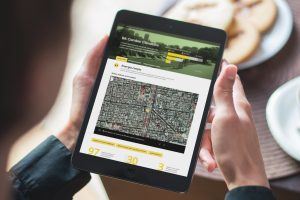
Citizens also asked for more information on city initiatives related to climate action, including recycling, vegetable gardens and composting.
With all this information, and in line with its commitment with the Open Government Partnership, Buenos Aires launched BA Climate Change, a platform co-created between government and civil society that combines openness of environmental information and citizen engagement, providing open dataBy opening up data and making it sharable and reusable, governments can enable informed debate, better decision making, and the development of innovative new services. Technical specifications: Polici... and visualizations about the City’s initiatives and goals, and proposals to foster participation, collaboration and cooperation and together achieve a resilient, carbon neutral and inclusive city.
As part of the open government agenda, the site contains more than 30 open data sets that can be downloaded and reused to undertake new studies or related activities.
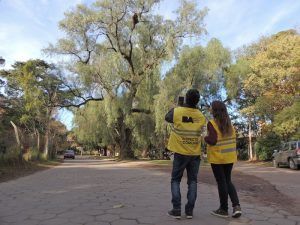
In addition, it includes a greenhouse gas inventory -open and interactive- and makes it possible for users to monitor how Buenos Aires is moving towards its goals of reducing carbon emissions by 53% by 2030 and by 84% by 2050.
It also presents graphics on the current modal distribution and the location of green recycling points and solar roofs in the City. The use of simple graphics enables more people to understand the content, without having to be experts on the subject.
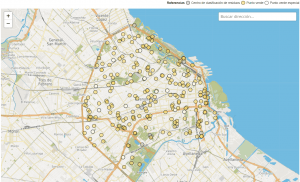
In addition, the site presents concrete proposals for people to join the fight against climate change. The “Play your part” section has information on workshops, guides and activities for waste management and on how to consume more sustainable products, alternatives for sustainable mobility and the generation of clean energy, and the “Collaboration and cooperation initiatives” and “Dialogue Spaces with Civil Society” sections, make visible the collaborative work with international organizations, companies and civil society organizations.
Likewise, the platform presents the main guidelines of the 2050 Climate Action PlanAction plans are at the core of a government’s participation in OGP. They are the product of a co-creation process in which government and civil society jointly develop commitments to open governmen... and allows citizens, companies, civil society organizations and experts to give their opinion and make contributions to how the strategy should be implemented, focusing on their participation.
Climate change is an urgent challenge that requires the leadership of cities and the collaboration of the private sector, citizens, civil society organizations and experts. Platforms such as OGP, promote and encourage the participation of all these actors, facilitating Buenos Aires and other cities around the world to achieve current and future international commitments.
A inicios del año, ciudades de todo el mundo reunidas en la red C40, grupo de liderazgo climático, coincidieron en que la recuperación de la pandemia exige un nuevo compromiso de las urbes para luchar contra el cambio climático.
Las ciudades ocupan solamente el 3% de la superficie del planeta pero consumen el 80% de la energía y emiten el 70% de gases de efecto invernadero. Aún así, son los gobiernos locales los que lideran la agenda de cambio climático y, en muchos casos, garantizan el cumplimiento de los compromisos internacionales asumidos por las naciones en esta materia, como el Acuerdo de París y los Objetivos de Desarrollo Sostenible.
Más de 100 ciudades se han comprometido a ser zonas carbono neutrales para el 2050, siendo la Ciudad de Buenos Aires una de las primeras 25. Sin embargo, el Gobierno de la Ciudad entiende que no puede cumplir este compromiso trabajando solo. Es necesario el esfuerzo conjunto de la ciudadanía, el sector privado, organizaciones de la sociedad civil y expertos.
A fin de generar conciencia e involucrar a todos estos actores, el primer paso es abrir información ambiental. Con este objetivo, Buenos Aires se propuso publicar datos y estadísticas sobre el estado de situación que permitan a los involucrados tomar mejores decisiones para cambiar la realidad.
Para que esta información fuera útil y accesible para los distintos actores, se realizaron entrevistas y encuentros virtuales con más de 600 habitantes, 20 organizaciones de la sociedad civil y 15 expertos en cambio climático donde se les preguntó qué información esperaban recibir del Gobierno de la Ciudad y cómo. Así, se planteó la necesidad de conocer, por ejemplo, el inventario de gases de efecto invernadero y la producción de energía limpia.

Además, la ciudadanía pidió más información sobre las distintas iniciativas de la Ciudad vinculadas con la acción climática, como el reciclado, las huertas y el compostaje.
Con toda esta información, y en línea con su compromiso con la Alianza de Gobierno Abierto, Buenos Aires lanzó BA Cambio Climático, una plataforma cocreada que combina apertura de información ambiental y activación cívica, brindando datos abiertos y visualizaciones sobre las iniciativas y metas de la Ciudad, y propuestas de participación, colaboración y cooperación para alcanzar juntos una ciudad resiliente, carbono neutral e inclusiva.
Como parte de la agenda de gobierno abierto, el sitio contiene más de 30 conjuntos de datos abiertos que pueden ser descargados y reutilizados para generar nuevos estudios y emprendimientos.

Además, incluye el inventario de gases de efecto invernadero -abierto e interactivo- y permite monitorear la evolución de la meta que se puso la Ciudad de reducir el 53% de las emisiones de carbono a 2030 y el 84% a 2050.
También presenta visualizaciones sobre la distribución modal actual y la ubicación de puntos verdes y de techos solares en la Ciudad. El uso de este tipo de visualizaciones simples permiten que más personas puedan acceder al contenido, sin necesidad de ser expertos en el tema.

Además, el sitio presenta propuestas concretas para que las personas se sumen a la lucha contra el cambio climático. La sección “Hacé tu parte” difunde talleres, guías y actividades para la gestión de residuos, el consumo de productos sustentables, alternativas de movilidad sustentable y la generación de energía limpia y las secciones “Iniciativas de colaboración y cooperación” y “Espacios de Diálogo con la Sociedad Civil”, visibiliza el trabajo colaborativo con organismos internacionales, empresas y organizaciones de la sociedad civil.
Asimismo, la plataforma presenta los principales lineamientos del Plan de Acción Climática 2050, y permite a los ciudadanos, empresas, organizaciones de la sociedad civil y expertos opinar y hacer aportes en la implementación de esta estrategia, haciendo foco en su participación.
El cambio climático es un desafío urgente que requiere del liderazgo de las ciudades y de la colaboración del sector privado, la ciudadanía, organizaciones de la sociedad civil y expertos. Plataformas como OGP, promueven e impulsan la participación de todos estos actores facilitando a Buenos Aires y otras ciudades del mundo alcanzar actuales y futuros compromisos internacionales.
No comments yet
Related Content

A Guide to Open Government and the Coronavirus: Green Transitions – Climate and Environment
The economic, social, climate, and health crises of 2020 are undoubtedly costly, but they present an opportunity to build back more sustainably...
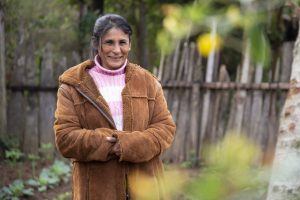 Challenges and Solutions
Challenges and Solutions Environmental Democracy: Where Open Government and the Escazu Agreement Meet
In 2018, 22 countries from Latin America and the Caribbean reached a historical milestone in environmental democracy by signing the Escazu Agreement. In 2020, 20 countries have ratified the treaty…
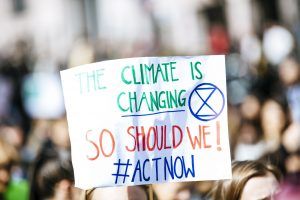
Opening up Climate Data
Open data adds value to the climate change agenda. After a little more than a year of work, we are finally finishing the pilot project for the implementation of the…

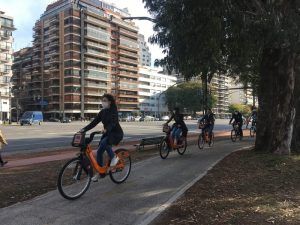
Leave a Reply